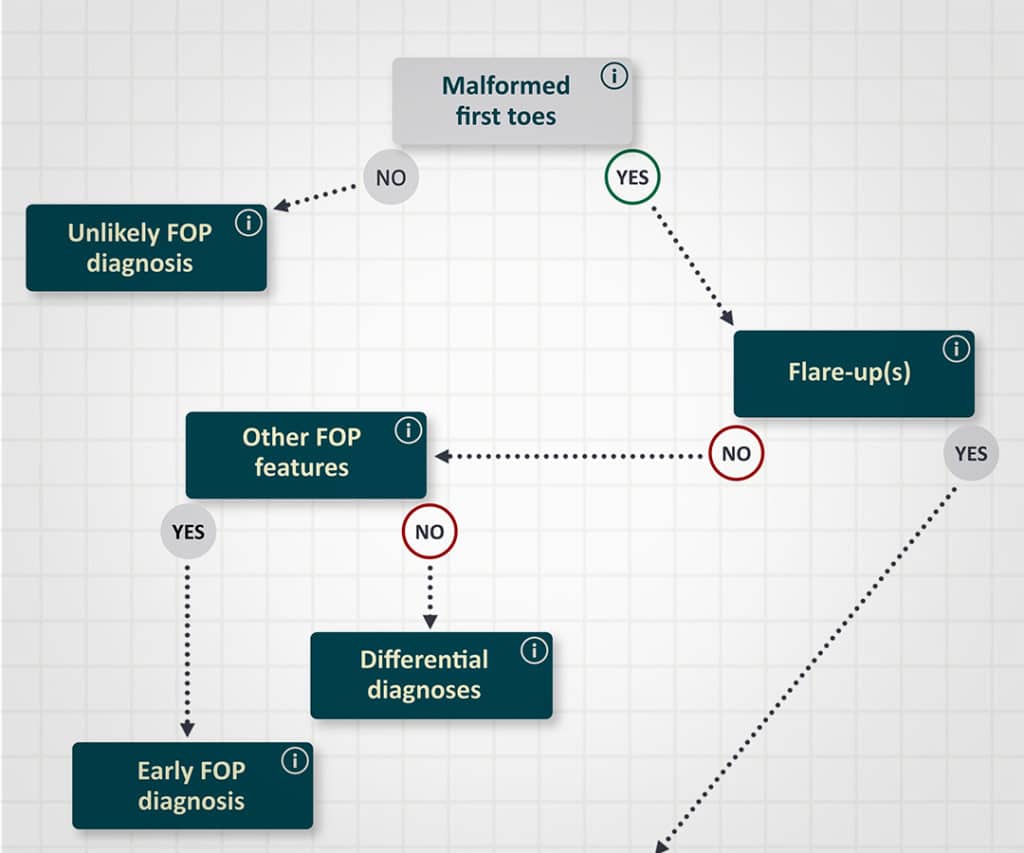Patient-reported outcome assessment may help monitor FOP changes

Palovarotene therapy reduces Palovarotene therapy in children and adults with fibrodysplasia ossificans progressiva (FOP), indicates the third interim analysis of the MOVE trial, conducted after at least 18 months of follow-up.
MOVE: 18-month analysis points to palovarotene ‘evidence for efficacy’ in FOP

Palovarotene therapy reduces heterotopic ossification (HO) in children and adults with fibrodysplasia ossificans progressiva (FOP), indicates the third interim analysis of the MOVE trial, conducted after at least 18 months of follow-up.
FOP Clinical Pearls

Explore this interactive body simulation and discover how to manage the complexities associated with FOP and advice on how to avoid harm while managing the direct symptoms of the disease, such as flare-ups, to more routine medical and dental care that needs to be carefully planned and tailored to avoid causing harm.
Each pearl is taken from the evidence-based ICCFOP management guidelines, with contributions from several expert ICC members sharing their real-life experiences avoiding harm and ensuring patients get the best tailored care possible.
Journey to FOP diagnosis

This tool will guide you through some simple steps on how to make an early diagnosis, highlighting common points at which misdiagnoses can be made.
Global study maps natural history of FOP

An international, 3-year study of people with fibrodysplasia ossificans progressive (FOP) has mapped the natural history of the disease and shown that the greatest levels of progression occur during childhood and early adulthood.
International survey measures FOP burden in patients and their families

An international survey of patients with fibrodysplasia ossificans progressiva (FOP) and their families has shown that decreased joint function is associated with reduced quality of life (QoL), greater reliance on living adaptations, and economic implications.
Palovarotene warrants further investigation for HO prevention in FOP

Treatment with the retinoic acid receptor (RAR)-gamma agonist palovarotene may prevent heterotopic ossification (HO) during a fibrodysplasia ossificans progressiva (FOP) flare-up, phase 2 study data suggest.
Novel ALK2 inhibitory compound may be a candidate FOP treatment

Swiss researchers have identified a novel compound that selectively inhibits activin receptor-like kinase 2 (ALK2) and may be a future candidate for the treatment of fibrodysplasia ossificans progressive (FOP).
Key FOP stakeholders discuss challenges and opportunities in care

A meeting of key stakeholders in the fibrodysplasia ossificans progressiva (FOP) community has highlighted the major challenges and opportunities for improvement in care pathways and patient involvement in research.
Social impact of COVID-19 pandemic felt among people with FOP

Since the start of the COVID-19 pandemic, individuals with fibrodysplasia ossificans progressiva (FOP) have reported decreased satisfaction with their social activities, declining mental health, and a reduction in dental visits, US research shows.